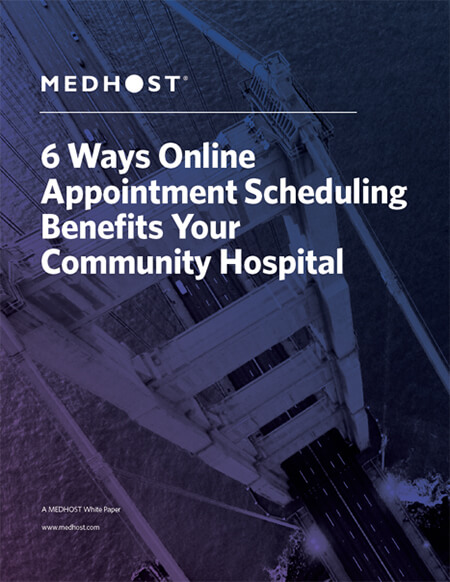Let’s talk about your EHR needs: 1.800.383.6278 MEDHOST Community Login

 Across the healthcare industry, patients and providers alike are grappling with the growing pains of a swiftly shifting healthcare landscape. The move to a value-based care system coupled with the evolving expectations of patients, puts more pressure on healthcare facilities and hospitals of all sizes to invest in the patient experience, specifically, prioritizing streamlined communication between patients and providers.
Across the healthcare industry, patients and providers alike are grappling with the growing pains of a swiftly shifting healthcare landscape. The move to a value-based care system coupled with the evolving expectations of patients, puts more pressure on healthcare facilities and hospitals of all sizes to invest in the patient experience, specifically, prioritizing streamlined communication between patients and providers.
For community hospitals serving rural populations, the reality of meeting provider challenges such as call volume management, referral inefficiencies and disjointed scheduling workflows are much more acute. In addition, patient access pain points like transportation barriers, clinician shortage issues and limited appointment availability, are in need of an effective and efficient care coordination system to increase patient satisfaction and perhaps even drive patient loyalty.
In this white paper we’ll detail how a simplified yet sophisticated digital appointment scheduling system can help address the challenges of care coordination, as well as outline the benefits that can be realized as a result. Community hospitals are often the lifeblood of healthcare in rural communities, a fact that creates a personal experience in providing and receiving care. When care coordination mishaps occur in community hospitals, providers and patients alike feel the sting of frustration and disappointment keenly.